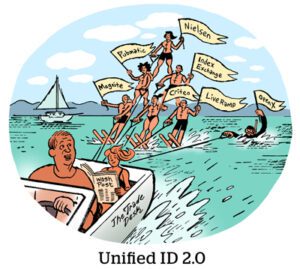 Here’s today’s AdExchanger.com news round-up… Want it by email? Sign-up here.
Here’s today’s AdExchanger.com news round-up… Want it by email? Sign-up here.
You Caught Me, COPPA
The FTC levied a $950,000 fine against InMobi, a mobile ad network founded in India and now based out of Singapore. The regulator said InMobi “deceptively tracked the locations of hundreds of millions of consumers – including children – without their knowledge or consent to serve them geotargeted advertising,” per the release. It’s a hefty fine, in large part because the FTC is really only empowered to take down ad firms that breach the Children’s Online Privacy Protection Act (COPPA). And InMobi apparently pulled geolocation data from apps targeted at children without securing parental consent. Ars Technica has more.
AmEx Builds A Bot
Back in April, Facebook revealed that it would let people develop bots (the friendly kind, not the fraudy kind) on top of Messenger. Two months later, about 10,000 are in some stage of development, and American Express previewed its version at Cannes. It’s the first financial services bot on the Messenger platform. Basically, AmEx card holders opt in to receive relevant messages and offers. Bought a plane ticket in Vegas? You’ll get a confirmation and a reminder that you can access a members-only lounge at the airport. There’s also a publisher play: AmEx sends restaurant recommendations, thanks to a partnership with the blog The Infatuation. Content is rendered in a Facebook container. “We’re thinking of this as a pilot,” AmEx digital partnerships VP Matt Sueoka told AdExchanger. “It’s very much a test-and-learn-type exercise. We want to see what resonates with people. Do people like receiving this content? Is this relevant? Is it making them happier with their card product?” The product is “coming soon,” with no set time frame. Read more.
Rosé With A Side Of Finger-Pointing
Marketers played the blame game with their agencies on a panel hosted by The Economist in Cannes on Tuesday. Executives from P&G, PepsiCo and AT&T said agencies are getting their comeuppances on ad blocking, nontransparent practices and outdated working models. “I don’t wake up every day wanting to disrupt the agency business. But I’ve been asking the industry for years to evolve their model and they haven’t, so we’ve done it ourselves,” said Brad Jakeman, president of the global beverage group at PepisCo. “I still value our agencies; however, the old adage that ‘you can have it fast, have it cheap, or have it good, but not all three’ is no longer true. I do want all three, and I have done it myself.” More.
Chit-Chat
Users of Asian messaging apps like Line and WeChat are much more likely to rely on their platforms to connect with brands or services, but advertising is a struggle. Ads accounted for less than a third of Line’s $1.1 billion in revenue last year, reports the Wall Street Journal. One analyst says the leaders in the Asian region are “light years ahead of Western messaging apps.” WeChat’s revenue may dwarf its would-be rivals, but you can’t forget the fundamental differences between regional markets. A bigger revenue driver for Line is stickers (customized emoji). WeChat only offers banner ads and competes in a market where none of the foreign (read: Silicon Valley) tech giants are allowed equal footing (or even a toehold). The model won’t work everywhere. More.
Edge Providers?
Since 2015, the FCC has sought to reclassify internet providers along the lines of landline phone networks, which would mean more oversight and stricter privacy standards. It’s a good plan, writes Debra Diener, former Department of Homeland Security privacy policy director, in a column at TechCrunch, except “the FCC’s effort will fall short unless it remedies a fundamental omission with far-reaching implications for online users.” As the FCC proposal is currently framed, “edge providers” like Google, Facebook and Amazon wouldn’t fall under the heightened regulatory standards. More.
But Wait, There’s More!
- 4A’s Hill, Pivotal’s Wieser Spar Over ANA Report – Beet.tv
- Online-Video Viewers Open Wallets In China – WSJ
- What Is The Role Of Marketing Agencies In Data Management? – Econsultancy
- In the Battle Of Restaurant Apps, Everyone Is Losing – VentureBeat
- ConvertMedia Integrates With 11 DSP And SSP Partners – release
- Some Pubs Experiment With Email Registration For Ad Block Trade – Digiday
- Oxygen Forensics Adds WhatsApp Data Extraction Capability – release
- How Five Publishers Transitioned Their Sites To Medium – Nieman Lab
- Hearst Unveils Trend-Detecting Tool For Its Advertisers – release
- Marketers Step Up Collaboration With Agency Partners – eMarketer
- Twitter Plans To Make Big Returns On Its NFL Streaming Deal – Recode













